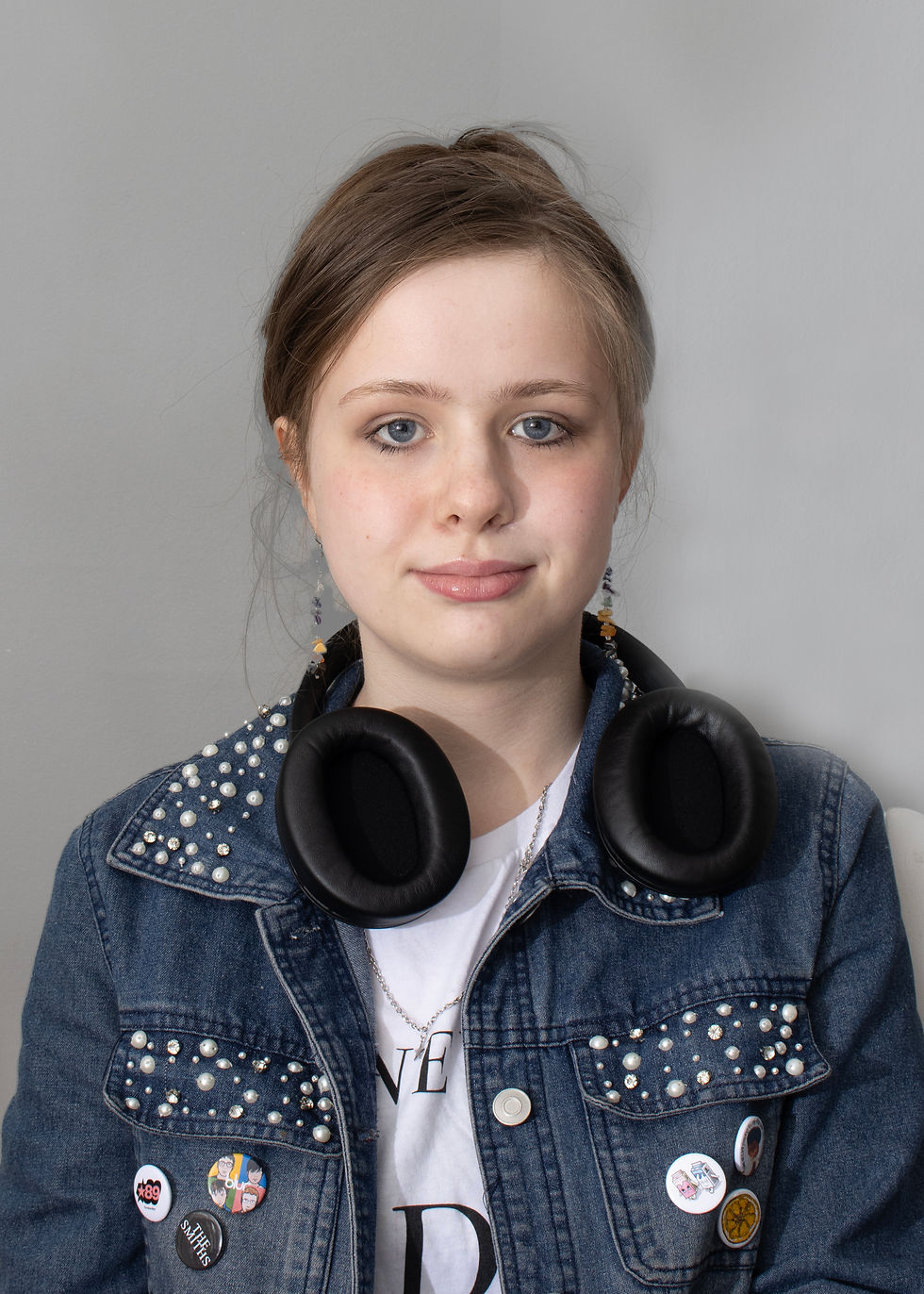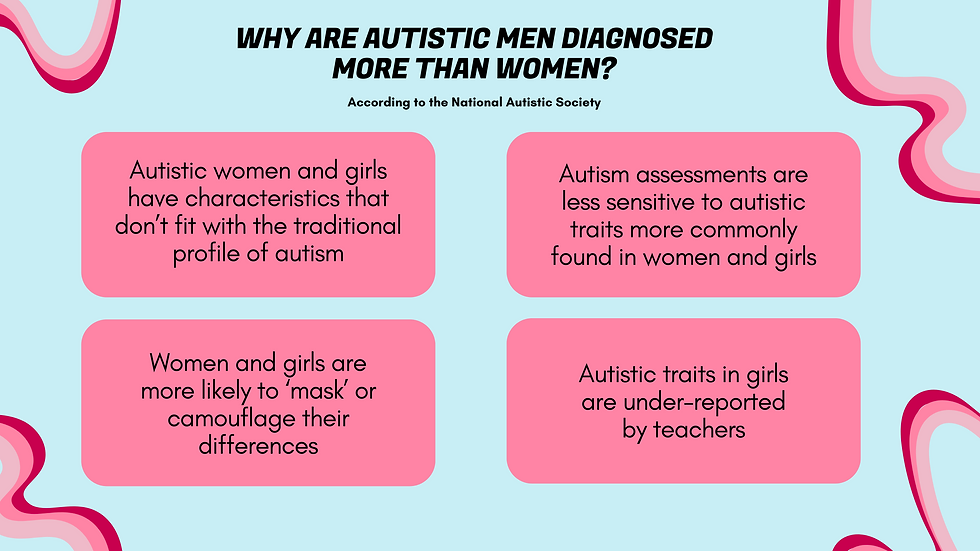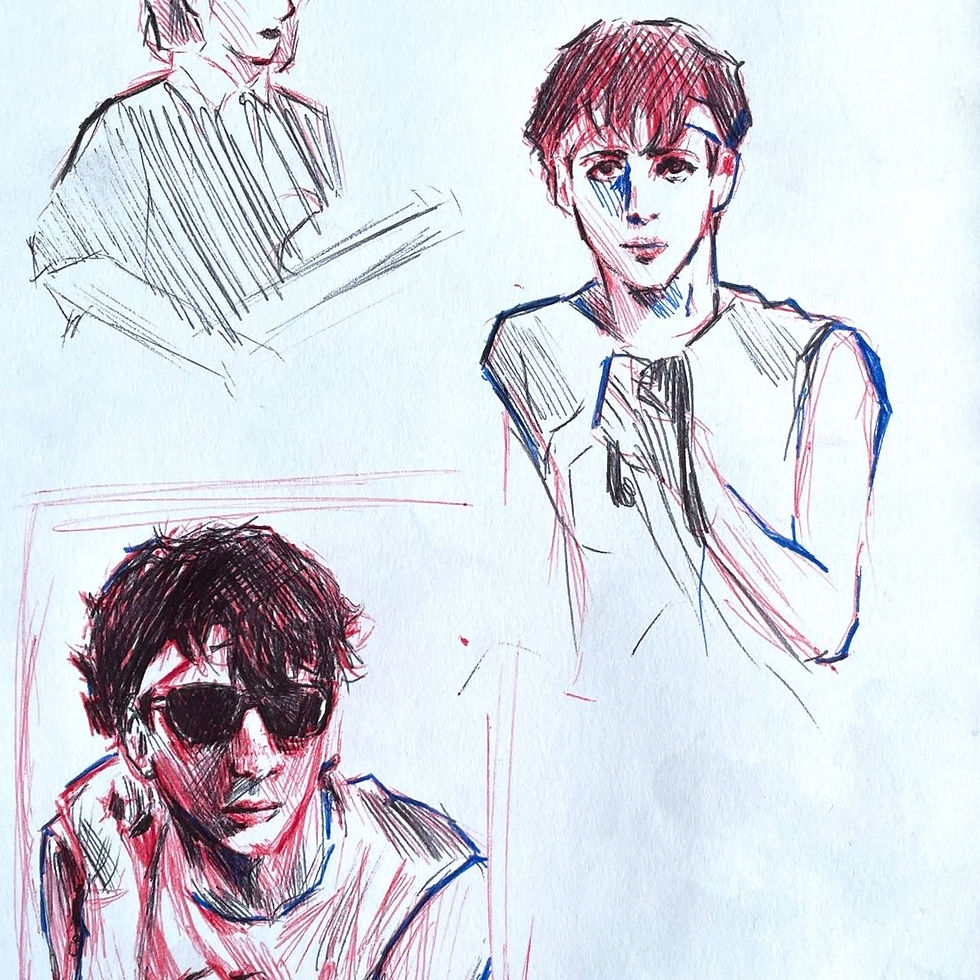Emily Turnbull and Her Experience With Autism – “Now I Accept Myself for Who I Am”
- Natasha Turnbull

- Apr 29, 2024
- 3 min read
Updated: Apr 30, 2024

Emily Turnbull is a 14-year-old student at Liberton High School. She opens up about her self-acceptance journey and the lack of representation for autistic women.
Although she was originally diagnosed with autism at 2 years old, she only properly found out about her diagnosis when she was 7. She didn’t like the idea of having a label placed upon her:
“I was just confused to be honest, I didn’t really understand it properly when my mum told me. I didn’t like that it was called autism.”
Reflecting on her past, she now feels entirely comfortable with her diagnosis. Emily explains that she views her condition from a neutral standpoint and feels happier within herself. However, reaching this level of self-acceptance was not an easy journey:
“Even a couple of years ago I would mask myself and I was not very happy with who I was, and I didn’t want to properly accept that I was autistic. Whereas now I accept myself for who I am.”
Masking would particularly impact Emily in school. Attending mainstream school, she would pretend to be more neurotypical to fit in with her peers. Furthermore, she would force herself to communicate in a ‘normal’ manner and place pressure upon herself to attend all her classes despite this being widely out of her comfort zone.
Emily believes there is still an issue in schools with people being judgemental towards neurodivergent people, tying this towards the lack of accurate representation of autistic people in the media:
The average ratio of autistic men to women is around 3:1, which has resulted in less representation for autistic women.

This absence of representation is something Emily has noticed; although she believes it has improved, she still thinks more could be done. She goes on to reflect on how her new group of friends allow her to embrace who she is:
Emily is thankful that her teachers have been understanding towards her, allowing her to wear her headphones and leave class when necessary. Additionally, she feels that the support she receives in school has improved over time:
“It’s been a long journey; I was in a very dark place with the support I got before but now I feel more understood, and it’s been a lot better.”
She notes this change has been due to a mix of improvement from the support system and a greater acceptance towards the help she needs to thrive.
Such support is crucial for Emily as she explains that being autistic mainly impacts her in school:
“In school I tend to get exhausted more quickly than a neurotypical person would. So, I go to the learning base sometimes to recharge myself. Sometimes I have meltdowns, so I just need to spend some time in there. Also, its really difficult to communicate to my friends sometimes so it feels like I can be a bit isolated.”
However, she also explains that she has improved at regulating her emotions over time.
Around six months ago, Emily volunteered for Oxfam. Although she is grateful for the experience, she no longer volunteers there as she felt she couldn’t communicate her feelings properly. Regarding employment in the future, Emily shares:
“I’m not too scared about it because I know I have a good support system, but I think it would definitely be more difficult to find a job that suits me than it would be for other people, so that does freak me out a little bit.”
Emily is passionate about art and music, as displayed in her work below. She shares how music feels like a safe space for her:
“As an autistic person I’m very inclined to music I feel like more than the average person would be, and I think a lot of autistic people use music to cope.”



Despite this, she does feel as though neurotypical people sometimes push all autistic people into the same box:
Due to going through a lot at a young age, Emily believes that being autistic has made her very emotionally aware towards other people’s feelings. Furthermore, she ends the conversation by reflecting on if being autistic defines her as a person:
“I think it does but with being neurotypical it affects you as well and who you are. Autism affects who I am but you being neurotypical affects who you are as well.”



Really interesting listening and reading about Emily’s journey. Thank you for sharing Emily I’m sure your understanding, self-awareness and honest reflections will help others make sense of some of those big feelings too. 🌺
Really enjoyed reading and listening to Emily’s journey and how fluently she explains how she feels. Such a mature understanding and I totally love that she now accepts who she is. Well done Natasha